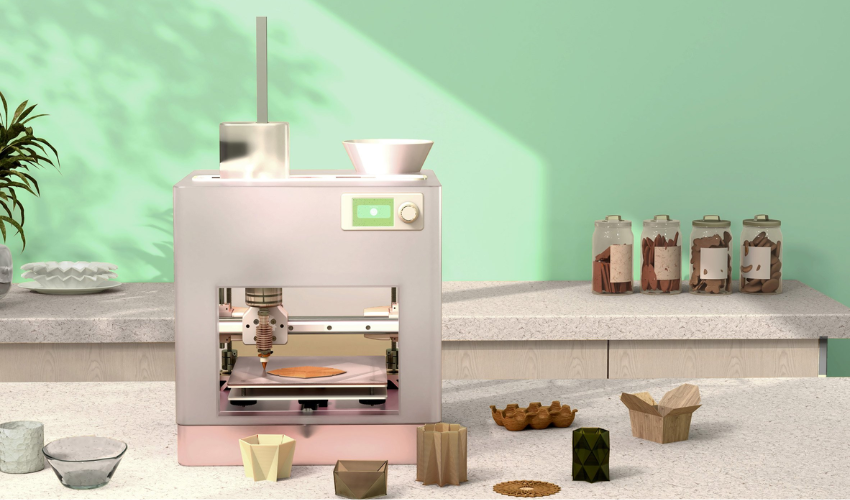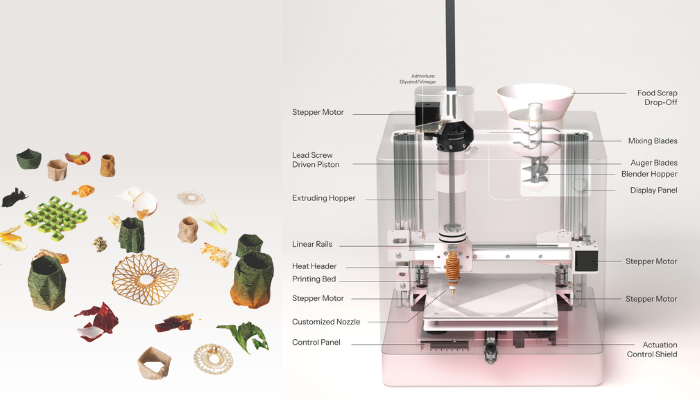
Biru Cao and Yiqing Wang, two graduates from MIT, recently developed a new desktop 3D printer called FOODres.AI.The system combines artificial intelligence, object recognition, and additive manufacturing to convert household food waste such as fruit peels, coffee grounds, and leftover rice into coasters, containers, and even small decorative items. Unlike most at-home 3D printers that rely on plastics or resins, FOODres.AI showcases how unconventional organic materials can be adapted for 3D printing by consumers at home.
The printer itself utilizes a custom three-axis extrusion system paired with a heating and mixing module that converts food waste into a printable bioplastic paste. Users are guided through a mobile app equipped with a self-trained object detection model, which identifies the type of waste through the phone’s camera and suggests suitable ‘recipes’ based on the material properties. The app will also provide users with a design template where they can upload custom models, making the system accessible even to those with minimal 3D printing experience.

FOODres.AI was created in part through the MIT IDEAS Social Innovation Program, and has received considerable recognition with the Platinum A’ Design Award 2024–2025 and the iF Design Award 2025. This project helps emphasize small-scale circular design by enabling the reuse of organized waste instead of diverting it to a landfill. Cao explained that, “We can turn food waste into something more meaningful,” highlighting the system’s dual role in both sustainability and education.
The compact design of the printer also allows it to be used in domestic settings, classrooms, and even small workshops. By combining automation, modularity, and AI guidance, the system not only produces durable objects from food scraps but also reinforces behavioral change by showing users how their waste can be transformed in real time. FOODres.AI serves as an example where the future of 3D printing can extend beyond conventional materials, giving household waste a new and functional life while promoting sustainability.
With its AI integration and the integration of additive manufacturing, FOODres.AI demonstrates how emerging technologies can converge to tackle everyday sustainability challenges. The system shows that innovation in 3D printing is not limited to industrial applications but can also reshape the way people interact with and repurpose materials in their homes.
What do you think about the FOODres.AI? Let us know in a comment below or on our LinkedIn or Facebook pages! Plus, don’t forget to sign up for our free weekly Newsletter to get the latest 3D printing news straight to your inbox. You can also find all our videos on our YouTube channel.
*All Image Credits: FOODres.AI

